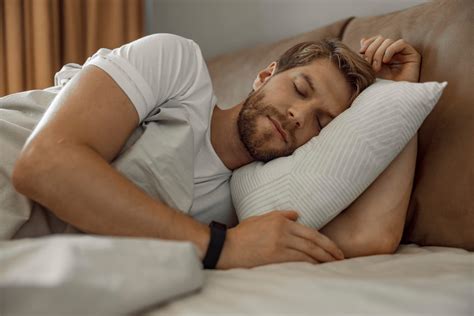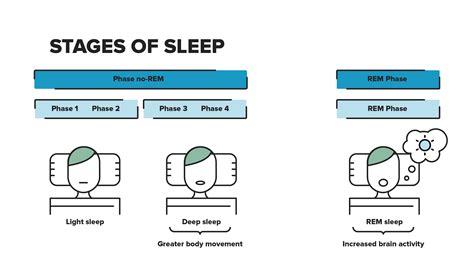Elite men’s health: How to optimize sleep for peak energy & cognitive function?

The Crucial Role of Sleep in Elite Men’s Health
For high-performing men, success isn’t just about relentless work; it’s also about strategic recovery. While diet and exercise often take center stage, optimizing sleep is arguably the most powerful yet often overlooked lever for unlocking peak physical energy, mental acuity, and sustained cognitive function. In today’s demanding world, treating sleep as a luxury is a critical mistake; it is a non-negotiable biological imperative for anyone striving for an elite level of performance in all aspects of life.
Adequate, high-quality sleep acts as the ultimate performance enhancer. It facilitates critical processes like memory consolidation, cellular repair, hormone regulation (including testosterone and growth hormone), and immune system strengthening. Neglecting sleep leads to diminished cognitive speed, impaired decision-making, reduced physical endurance, increased stress, and a heightened risk of chronic disease. This article will explore actionable strategies for men to transform their sleep habits and harness its profound benefits.

Understanding the Science of Sleep
Sleep isn’t a passive state; it’s a dynamic process comprising several stages, primarily REM (Rapid Eye Movement) and non-REM sleep, which cycle throughout the night. Non-REM sleep is crucial for physical repair, hormone release, and immune system consolidation. REM sleep, on the other hand, is vital for emotional regulation, memory processing, and problem-solving. Disruptions to these cycles, whether from insufficient duration or poor quality, directly impact daily function.
The body’s natural sleep-wake cycle, known as the circadian rhythm, is primarily regulated by light exposure. Exposure to bright light in the morning signals the body to wake up, while darkness in the evening prompts the release of melatonin, the sleep hormone. A consistent circadian rhythm is fundamental to falling asleep easily and waking up refreshed, making it a cornerstone of elite sleep optimization.
Mastering Your Sleep Environment
Transforming your bedroom into a sleep sanctuary is a crucial first step. The ideal sleep environment should be:
- Dark: Even minimal light, from digital clocks or streetlights, can disrupt melatonin production. Use blackout curtains or an eye mask.
- Quiet: Eliminate noise as much as possible. Earplugs or a white noise machine can be invaluable, especially in urban environments.
- Cool: The optimal temperature for sleep is generally between 60-67°F (15-19°C). A cooler room helps the body lower its core temperature, a necessary step for initiating and maintaining sleep.
- Comfortable: Invest in a supportive mattress and pillows that align with your sleep position. High-quality bedding made from breathable materials can also enhance comfort.

Implementing a Powerful Pre-Sleep Routine
Just as athletes warm up before a game, your body needs a wind-down period before sleep. A consistent pre-sleep routine signals to your brain that it’s time to prepare for rest:
- Digital Detox: At least 60-90 minutes before bed, put away all screens (phones, tablets, computers, TV). The blue light emitted by these devices suppresses melatonin production and stimulates the brain.
- Relaxation Techniques: Engage in calming activities such as reading a physical book, taking a warm bath or shower, meditating, gentle stretching, or listening to soothing music.
- Avoid Stimulants: Limit caffeine intake, especially in the afternoon and evening (generally after 2 PM). Alcohol, while initially sedating, disrupts sleep architecture later in the night.
- Light Snack (Optional): If hungry, a light snack rich in tryptophan (like a banana or a small handful of nuts) can be beneficial, but avoid heavy meals close to bedtime.
Lifestyle Factors for Optimal Sleep
Beyond the bedroom, daily habits profoundly impact your nightly rest:
- Consistent Sleep Schedule: Go to bed and wake up at roughly the same time every day, even on weekends. This reinforces your circadian rhythm.
- Regular Exercise: Physical activity during the day improves sleep quality. However, avoid intense workouts too close to bedtime (within 3-4 hours), as this can be too stimulating.
- Strategic Light Exposure: Get 15-30 minutes of natural light exposure early in the morning to help set your circadian rhythm. Minimize bright artificial light in the evening.
- Hydration and Nutrition: Stay well-hydrated throughout the day, but reduce fluid intake closer to bedtime to avoid nighttime awakenings for bathroom breaks. Focus on a balanced diet rich in whole foods. Magnesium-rich foods (leafy greens, nuts, seeds) can be particularly beneficial for relaxation.

When to Consider Professional Support
While these strategies can significantly improve sleep for most men, persistent sleep issues might indicate an underlying sleep disorder. If you consistently struggle with falling asleep, staying asleep, or wake up feeling unrefreshed despite diligent efforts, consider consulting a healthcare professional or a sleep specialist. Conditions like sleep apnea, insomnia, or restless leg syndrome require medical diagnosis and treatment.

Conclusion: Unleash Your Full Potential Through Sleep
Optimizing sleep is not merely about getting more hours; it’s about prioritizing high-quality, restorative rest that supports every facet of your being. By implementing these strategies – creating an ideal sleep environment, establishing a consistent pre-sleep routine, aligning with your circadian rhythm, and maintaining healthy lifestyle habits – elite men can unlock profound improvements in energy levels, cognitive sharpness, emotional resilience, and overall well-being. Make sleep a cornerstone of your health regimen, and watch your performance reach new heights.










